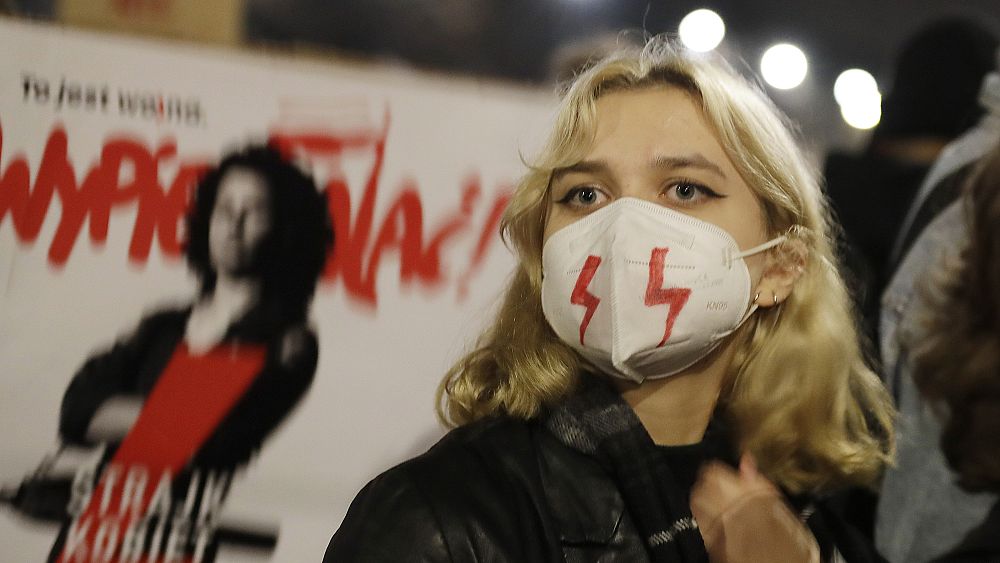Anti-government protests triggered by the tightening of Poland”s strict abortion law took place for an 11th day on Sunday in the predominantly Catholic nation.
People in many cities again disregarded a virus-control restriction limiting public gatherings to no more than five people. Marches, some of them held in silence, were organized in the cities of Szczecin, Wroclaw, Krakow, Lodz, but not in the Polish capital of Warsaw, where some 100,000 protested Friday.
Some protesters carried chrysanthemums and memorial candles as reminders that Sunday was All Saints’ Day, a national holiday. Poles were unable to visit the graves of their loved ones because the government decided to close all cemeteries due to the fast-spreading virus.
Drawing from the slogans on banners and chants from the recent demonstrations, Women’s Strike, the group leading the protests, has outlined areas beyond abortion rights that it says need urgent change.
They include wider rights for women and for the LGBT community, separation of the state from Poland’s influential Catholic Church, more funds for the health care and better employment terms for young people.
Hundreds of thousands of Poles, mainly young, have been protesting daily against the right-wing government and the ruling Law and Justice party since the country’s constitutional court ruled Oct.22 to overturn a provision of Poland’s abortion law that permitted abortions of fetuses with congenital defects.
They have been chanting for the resignation of the Law and Justice-led government, which has been in power since 2015. The government’s moves to control the judicial system, a new animal rights law and remarks against LGBT rights by top officials created political divisions and provoked some protests even before the abortion ruling.
More protests, led by women’s rights activists, are planned for next week. There were no signs of any potential negotiations between the activists and government officials.
Alarmed by the rising tensions, a group of some 200 retired generals from Poland’s armed forces, border patrol agency and other security bodies expressed their “deep anxiety” over recent decisions taken by the country’s leaders during the COVID-19 pandemic and economic downturn that have led to social discontent and protests.
They appealed to politicians, protesters and security forces to demonstrate calm and wisdom.
The retired generals warned that “further escalation of actions and irresponsible behavior by politicians will lead to tragic and irreversible consequences” such as “bloodshed.”








